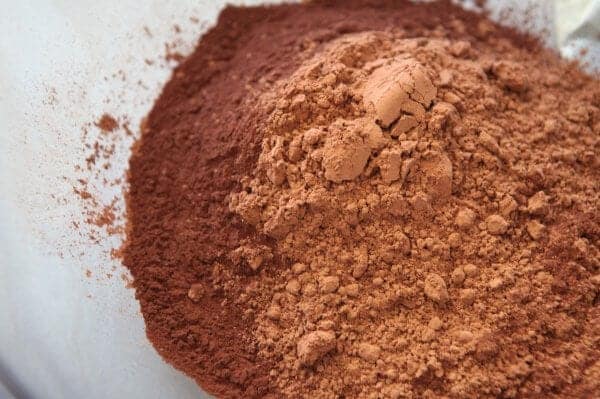You might be able to justify that second candy bar after all.
A recent study found that cocoa flavanols, compounds found in high concentrations in plant-based foods and beverages, are helpful to the brain.
Italian researchers analyzed the effects of cocoa flavanols in the role of cognitive functions, attention and memory. The flavanols showed the most promise in older adults with cognitive impairments, authors Valentina Socci and Michele Ferrara said in a press release.

“This result suggests the potential of cocoa flavanols to protect cognition in vulnerable populations over time by improving cognitive performance,” they said.
Specifically, the study found improvements in older adults with cognitive impairments including developments in processing speed, executive function and working memory. The cocoa flavanols also helped with the participants’ cardiovascular health, the researchers said.
“If you look at the underlying mechanism, the cocoa flavanols have beneficial effects for cardiovascular health and can increase cerebral blood volume in the dentate gyrus of the hippocampus,” they said. “This structure is particularly affected by aging and therefore the potential source of age-related memory decline in humans.”
When the cocoa flavanols were even higher in concentration, the researchers found that the older adults with cognitive impairments had improved while completing a verbal fluency task. The development of mental ability and better blood pressure was also paired with an improvement in insulin resistance.
Related: New Chocolate Pill Claims to Cut Risk of Dementia and Heart Attack
Young adults had similar results to the older adults after participating in the same daily consumption of cocoa flavanols over an eight week period. Those who consumed an intermediate or high amount of cocoa flavanols showed better performance in a variety of cognitive domains compared to those who consumed small amounts of the flavanols.
Cocoa flavanols could help produce an immediate cognitive-enhancing effect and sustain performance in cognitively demanding conditions, such as fatigue and sleep loss. But consuming cocoa or chocolate can have its drawbacks as well.

“Regular intake of cocoa and chocolate could indeed provide beneficial effects on cognitive functioning over time. There are, however, potential side effects of eating cocoa and chocolate,” the researchers said. “Those are generally linked to the caloric value of chocolate, some inherent chemical compounds of the cocoa plant such as caffeine and theobromine, and a variety of additives we add to chocolate such as sugar or milk.”
The researchers said more studies should be conducted on cocoa flavanol consumption and how it affects the body. Specifically, they said information about the appropriate dose, timing, and form of flavanols in order to be beneficial in different populations is needed.
Related: Can Eating Chocolate Prevent Irregular Heartbeat?
Additionally, the effects from the cognitive tests completed during the study depended on how long the tests were as well as how demanding they were. Most young adults had to take a high-demand cognitive test to determine what behavioral effects were taking place.
Studies on the effects of cocoa flavanols aren’t widespread, but those that do exist have noted improvements in memory and visual information processing after consuming the flavanols. Women were even found to be able to counteract cognitive impairment from pulling an all-nighter by eating cocoa.
The researchers said they follow the results of their study, published in Frontiers in Nutrition, and practice their findings.
“Dark chocolate is a rich source of flavanols. So we always eat some dark chocolate. Every day,” they said.
Tori Linville is a freelance writer and editor from Clarksville, Tennessee. When she isn’t writing or teaching, she’s faithfully watching her alma mater, the University of Alabama, dominate the football field.


![How To: ‘Fix’ Crepey Skin [Watch]](https://cdn.vitalupdates.com/wp-content/uploads/2017/05/bhmdad.png)












